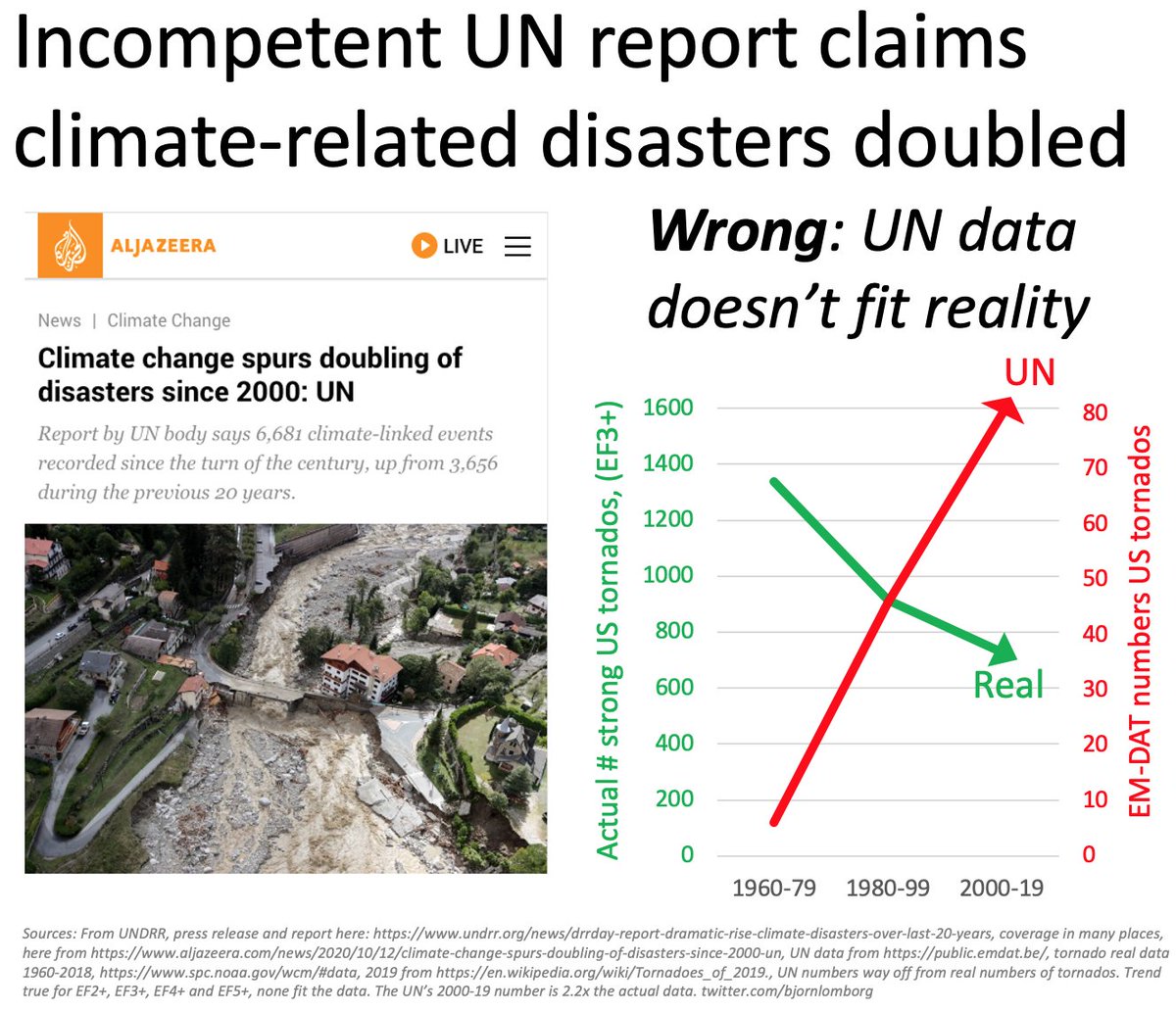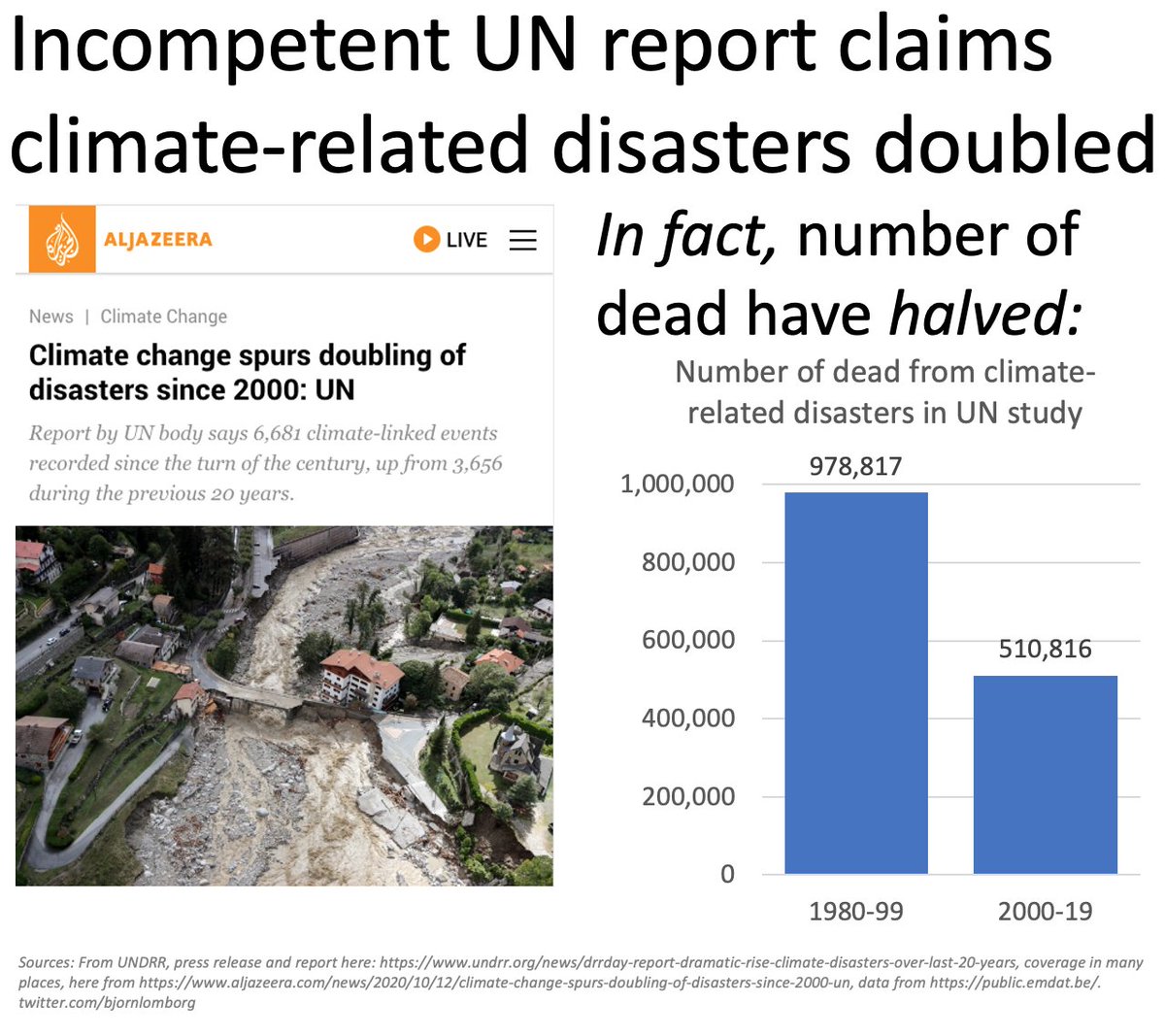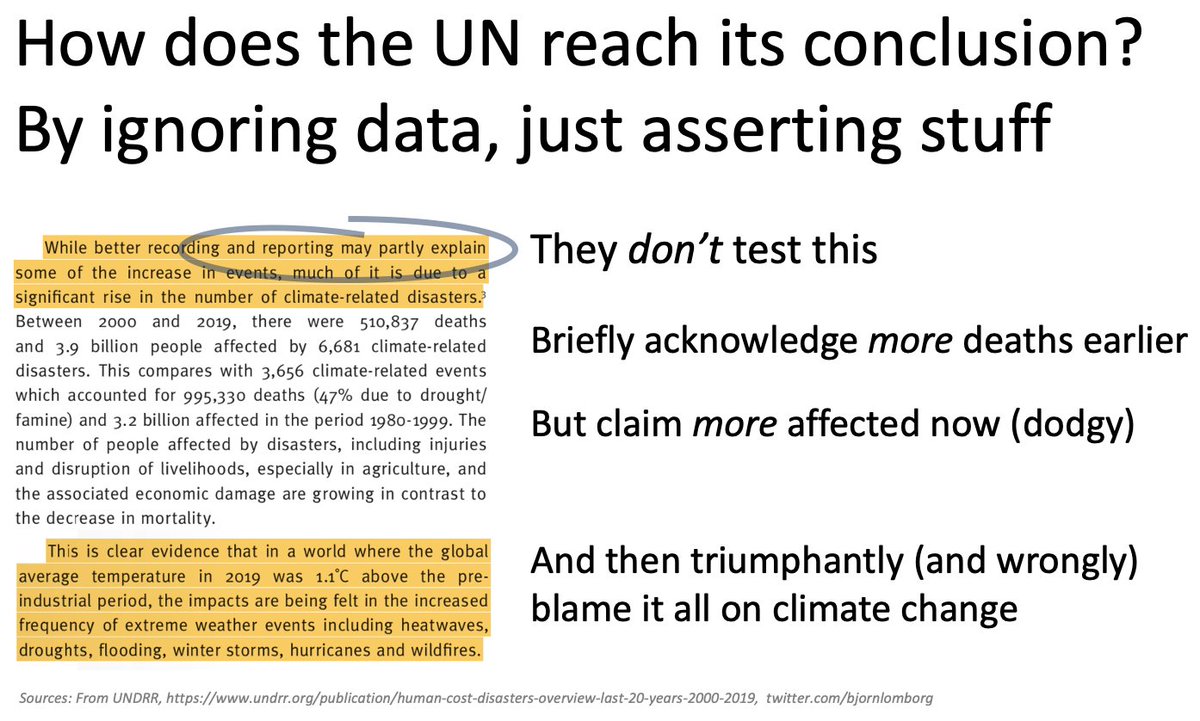
Breathless climate reporting told us of an extraordinary 2020 hurricane season
Yes. It was extraordinary. Extraordinarily *weak*
Globally 2020 was one of the weakest in past 40 years
Accumulated Cyclone Energy was 76% of average (1980-2010)
Update of agupubs.onlinelibrary.wiley.com/doi/full/10.10…
Yes. It was extraordinary. Extraordinarily *weak*
Globally 2020 was one of the weakest in past 40 years
Accumulated Cyclone Energy was 76% of average (1980-2010)
Update of agupubs.onlinelibrary.wiley.com/doi/full/10.10…

But we were told of 2020 'record' hurricanes?
Yes, in North Atlantic
But most climate reporting conveniently left out:
much lower hurricane energy in Western Pacific+Eastern Pacific
lower energy in Southern Hemisphere, Nothern Hemisphere and Global
agupubs.onlinelibrary.wiley.com/doi/full/10.10…
Yes, in North Atlantic
But most climate reporting conveniently left out:
much lower hurricane energy in Western Pacific+Eastern Pacific
lower energy in Southern Hemisphere, Nothern Hemisphere and Global
agupubs.onlinelibrary.wiley.com/doi/full/10.10…

We have data back to 1970, but before satellites (~1980), it is probably undercounted. Moreover, 1970s and 1980s were relative hurricane lulls, so starting there can give a spurious upward trend
Still, 2020 was a very un-active year
Still, 2020 was a very un-active year

Global number of hurricanes varies a lot over 50 years, but no significant trends
(cat3+ increasing insignificantly, all decreasing insignificantly)
2020 below average for both all and strong hurricanes
(undercounting likely before 1980, and ignore lull in 1970s+80s)
(cat3+ increasing insignificantly, all decreasing insignificantly)
2020 below average for both all and strong hurricanes
(undercounting likely before 1980, and ignore lull in 1970s+80s)

Undercounting hurricanes in open waters before satellites a significant problem — see here the difference in the two top N Atlantic ACE years, 1933 and 2005
agupubs.onlinelibrary.wiley.com/doi/pdf/10.102…
Landfalling hurricanes get noticed, are better recorded + more relevant
agupubs.onlinelibrary.wiley.com/doi/pdf/10.102…
Landfalling hurricanes get noticed, are better recorded + more relevant
https://twitter.com/BjornLomborg/status/1329040774844059648

Here global landfalling hurricanes 1950-2020 (landfalling more likely recorded, but still likely undercounting before 1980)
No significant trends
(also shows risk of starting stats in 1970 or 80 with spurious upward trend because starting in lull)
agupubs.onlinelibrary.wiley.com/doi/full/10.10…
No significant trends
(also shows risk of starting stats in 1970 or 80 with spurious upward trend because starting in lull)
agupubs.onlinelibrary.wiley.com/doi/full/10.10…

Climate scares based on just reporting from North Atlantic can lead to bad decisions
Climate change real problem, but we must be careful not — in panic — spending so much resources, the cure is costlier than the affliction
Read my peer-reviewed article: sciencedirect.com/science/articl…
Climate change real problem, but we must be careful not — in panic — spending so much resources, the cure is costlier than the affliction
Read my peer-reviewed article: sciencedirect.com/science/articl…
Scared witless has real impacts
Half the world now believe climate change will make humanity go extinct
Reality? UN expects average person in 2100 to be 450% richer. Climate will make that 434%. Problem, not end-of-world
My new book (free first 25p): ow.ly/HUkU50A9v1o
Half the world now believe climate change will make humanity go extinct
Reality? UN expects average person in 2100 to be 450% richer. Climate will make that 434%. Problem, not end-of-world
My new book (free first 25p): ow.ly/HUkU50A9v1o

• • •
Missing some Tweet in this thread? You can try to
force a refresh



















